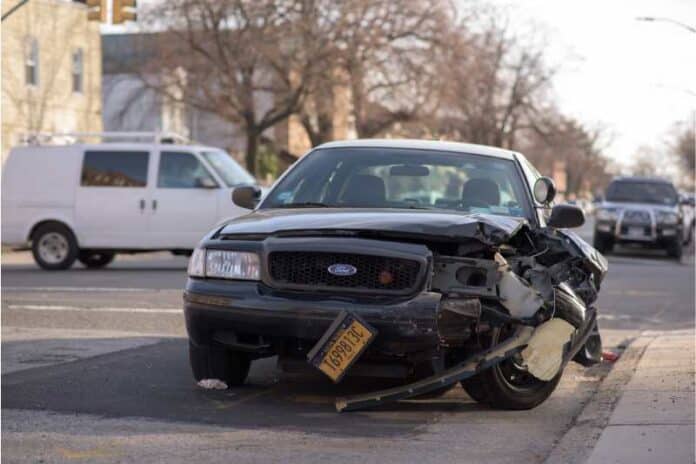
Car accidents can be traumatic experiences with far-reaching consequences, both immediate and long-term. In the chaotic aftermath, it’s crucial to approach the situation with a clear understanding of the do’s and don’ts that can significantly impact your physical well-being, emotional recovery, and legal standing.
This guide outlines key steps to prioritize safety, handle interactions with other parties involved, engage law enforcement and insurance companies, seek legal counsel wisely, and ensure timely medical attention.
By following these recommendations, you not only safeguard your immediate interests but also set the stage for a smoother and more effective recovery process.
Do: Prioritize Safety First
In the chaotic aftermath of a car accident, the first and foremost priority is safety. Before anything else, ensure that everyone involved in the accident is safe and out of harm’s way. If possible, move the vehicles to the side of the road to prevent further collisions.
Activate hazard lights, set up warning triangles, and take any necessary precautions to alert oncoming traffic. If there are injuries, promptly call emergency services for medical assistance. Even seemingly minor accidents can result in hidden injuries that may manifest later, so seeking medical attention is crucial.
Don’t: Admit Fault or Make Apologies
Amid the stress and tension following a car accident, it’s essential to resist the urge to admit fault or apologize, even if you feel responsible. Admitting fault at the scene can have legal implications and may be used against you in insurance claims.
Instead, focus on exchanging information with the other parties involved. Collect names, contact details, insurance information, and, if possible, the contact information of any witnesses.
Document the scene by taking photographs of the vehicles, the surrounding area, and any relevant road signs or signals. Such documentation can serve as valuable evidence during the claims process.
Do: Notify Law Enforcement and Your Insurance Company
Once safety is ensured and necessary information is exchanged, promptly notify the police and your insurance company. Even if the accident seems minor, having an official police report can be crucial when dealing with insurance claims and legal matters.
Provide an accurate account of the events to the responding officers, sticking to the facts without speculating or assuming blame. Inform your insurance company as soon as possible, providing them with the details of the accident. Timely reporting is often a requirement for filing a claim, and delays could complicate the process.
Work closely with your insurance adjuster, providing all requested information and documentation to facilitate a smoother claims process.
Do: Seek Legal Counsel Wisely
In the aftermath of a car accident, it’s wise to consider consulting a car accident lawyer, especially if injuries are involved or liability is contested. A skilled attorney can provide valuable guidance, ensuring your rights are protected and helping you navigate the complexities of insurance claims and potential legal actions.
Before settling with insurance companies or making official statements, consult with a car accident lawyer to understand the full extent of your situation. They can assess the circumstances surrounding the accident, advise on the best course of action, and advocate on your behalf.
A lawyer becomes particularly crucial when dealing with disputes, ensuring that your interests are represented and you receive fair compensation for damages and injuries. By involving legal counsel early in the process, you can strengthen your position and enhance the likelihood of a favorable resolution.
Don’t: Delay Medical Attention
In the aftermath of a car accident, it’s imperative not to delay seeking medical attention, even if injuries seem minor or non-existent at first. Some injuries, such as whiplash or internal trauma, may not manifest symptoms immediately.
By seeking medical attention promptly, you not only prioritize your health but also create a crucial record of any injuries sustained during the accident. This medical documentation can play a pivotal role in supporting your insurance claim and any potential legal actions.
Delaying medical attention can not only worsen potential health issues but may also create complications when seeking compensation for medical expenses and related damages.
Do: Preserve Evidence and Document Damages
Preserving evidence is vital in the aftermath of a car accident, and this extends beyond the initial scene. Document any damages to your vehicle thoroughly, including both interior and exterior damage. If possible, take photographs of injuries sustained by you or others involved.
Preserve any relevant items, such as clothing or personal belongings that may serve as evidence. This comprehensive documentation can be instrumental in supporting your insurance claim and any legal actions that may follow.
Additionally, make note of any conversations with insurance adjusters or the other parties involved in the accident, keeping a detailed record of dates, times, and the content of discussions.
 Don’t: Rely Solely on Police Reports
Don’t: Rely Solely on Police Reports
While a police report is a crucial piece of documentation after a car accident, it’s essential not to rely solely on it for your case. Police reports can be incomplete or contain errors, and they may not capture the full complexity of the situation.
Take the initiative to gather your own evidence and witness statements to provide a more comprehensive picture of the events leading up to and following the accident. This additional documentation can be invaluable in reinforcing your version of the events and strengthening your position in insurance negotiations or legal proceedings.
Collaborating with law enforcement is essential, but taking personal responsibility for gathering evidence can significantly enhance the thoroughness of your case.
In the aftermath of a car accident, the steps you take can shape the trajectory of your recovery physically, emotionally, and legally. Prioritizing safety, refraining from admissions of fault, and promptly involving law enforcement and insurance companies form the foundation of responsible post-accident conduct.
Seeking legal counsel wisely, especially with a car accident lawyer, can provide an extra layer of protection for your rights and interests. Remember not to delay seeking medical attention and to preserve evidence diligently, as these actions contribute significantly to the strength of your insurance claims and potential legal actions.
By following these do’s and don’ts, you not only safeguard your well-being and rights but also pave the way for a smoother and more effective recovery process. The road to recovery may be challenging, but with informed and strategic actions, you can navigate it with greater confidence and resilience.

 Don’t: Rely Solely on Police Reports
Don’t: Rely Solely on Police Reports



